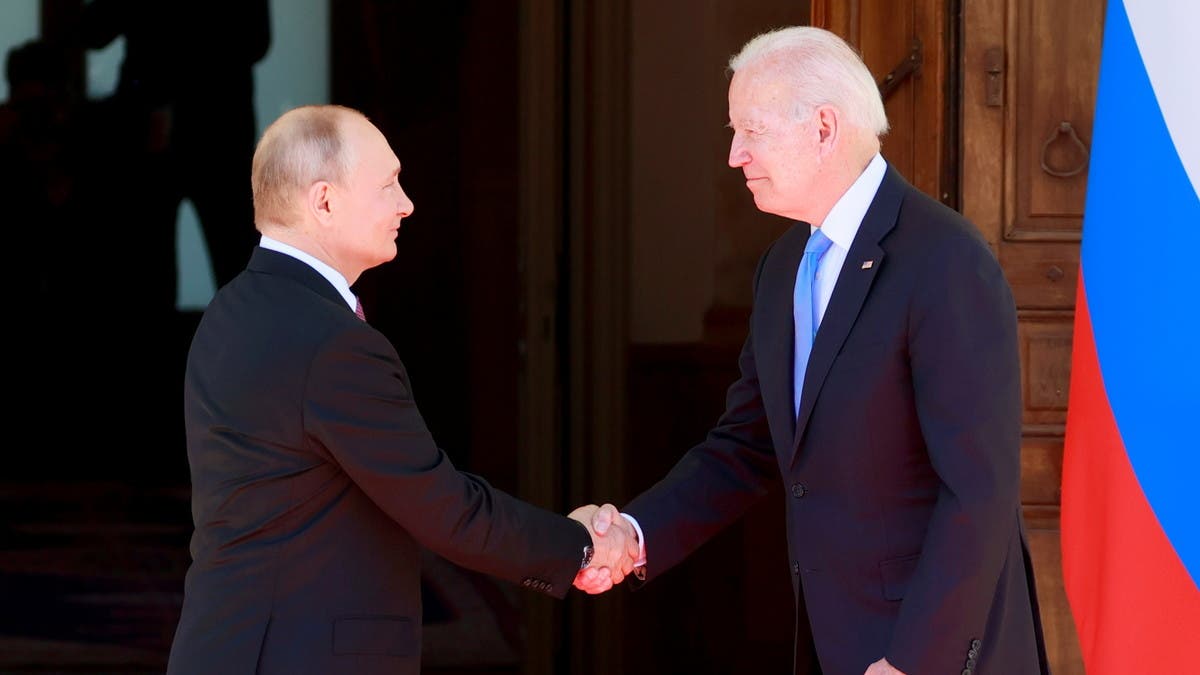Presidents Joe Biden and Vladimir Putin have a chasm of mutual distrust to bridge when they hold a virtual meeting on Tuesday in the shadow of what the United States believes is a threatened Russian invasion of Ukraine.
“A lamentable state,” was how the Kremlin described relations ahead of the extended video conference call, which it expects to start around 1500 GMT/10 a.m. ET.
For the latest headlines, follow our Google News channel online or via the app.
Washington has accused Russia of massing troops near the border with Ukraine to intimidate an aspiring NATO member, suggesting it could be a repeat of Moscow’s 2014 playbook, when it seized the Black Sea peninsula of Crimea from Ukraine. It says the West is ready with tough sanctions if Russia invades.
The Kremlin has rejected the idea that its forces are poised to invade as fear-mongering and has said its troops move around its own territory for purely defensive purposes.
For Moscow, the growing NATO embrace of a neighboring former Soviet republic – and what it sees as the nightmare possibility of alliance missiles in Ukraine targeted against Russia – is a “red line” it will not allow to be crossed.
Putin has demanded legally binding security guarantees that NATO will not expand further east or place its weapons close to Russian territory; Washington has repeatedly said no country can veto Ukraine’s NATO hopes.
“I don’t accept anybody’s red lines,” Biden said on Friday.
Andrey Kortunov, head of the Russian International Affairs Council which is close to the Foreign Ministry, said their positions were unlikely to be reconciled.
“The only thing they can probably agree on – if it turns out to be a good conversation – is that everybody directly or indirectly engaged there in the situation should demonstrate restraint and commitment to de-escalate. But otherwise I see no way how Biden can promise Putin that NATO will not go east.”
A spokesperson for the US National Security Council said Washington wanted to avert a crisis and a negative spiral in the broader relationship through diplomacy and de-escalation.
Some Russian and US analysts have suggested the leaders could agree to set up de-escalation talks and the Kremlin has made clear it wants a new Putin-Biden summit next year.
While US officials have repeatedly said they do not know Putin’s intentions towards Ukraine, a Biden administration official told Reuters the United States believed one option he was weighing was a military offensive as soon as early 2022 involving 175,000 troops, armored units and artillery.
The US estimated that half of those Russian units were already near the Ukrainian border, the same official said.
Saving face
The United States offered last week to mediate between Russia and Ukraine on ending the seven-year-old war between Ukrainian government forces and Russian-backed separatists on the basis of the Minsk agreements of 2014 and 2015.
Russian Foreign Minister Sergei Lavrov has said Moscow has no objections to that in principle.
But Vladimir Frolov, a foreign policy analyst and former Russian diplomat in the United States, said drawing Washington into that process would look like a defeat for Moscow. Nor was he confident that Putin would settle for a vague promise of talks on the future security architecture of Europe.
“By demanding legally binding guarantees Moscow has narrowed the room for manoeuvre for its diplomacy, which kind of tells you they are not really betting on diplomacy to succeed,” Frolov said.
In Kyiv, President Volodymyr Zelenskiy said Ukraine’s armed forces were capable of fighting off any attack from Russia as the country marked its national army day on Monday with a display of US armoured vehicles and patrol boats.
‘No more strength’
People interviewed on the streets of the Ukrainian capital had mixed expectations of Tuesday’s talks.
“We believe that Biden is a big friend of our country. So far he proved himself as a person who sincerely wants to help Ukraine out of this senseless situation,” said Volodymyr Pylypyuk, 71.
But Ruslan Lapuk, a 28-year-old bartender, saw little chance of a breakthrough. “We have nobody to count on but on our own forces, on ourselves first of all,” he said.
Vladimir Bulatov, 61, told Reuters in Moscow that the leaders should talk about reducing the risk of a “hot war,” but he doubted whether it was possible. “I don’t believe anything sensible will come out of this meeting.”
Elena, a pensioner interviewed in the conflict region of eastern Ukraine, said she was pinning her hopes on a halt to shelling.
“Things have to change – that’s what we are hoping for,” she said. “We have no more strength to endure this.”
Biden and Putin head into Ukraine talks with scant room for compromise.
Read more: Ukraine marks army day with US armored vehicles, boats and vows to fight off Russia

 World2 years ago
World2 years ago
 World2 years ago
World2 years ago
 Entertainment7 years ago
Entertainment7 years ago
 World7 years ago
World7 years ago
 Entertainment7 years ago
Entertainment7 years ago






